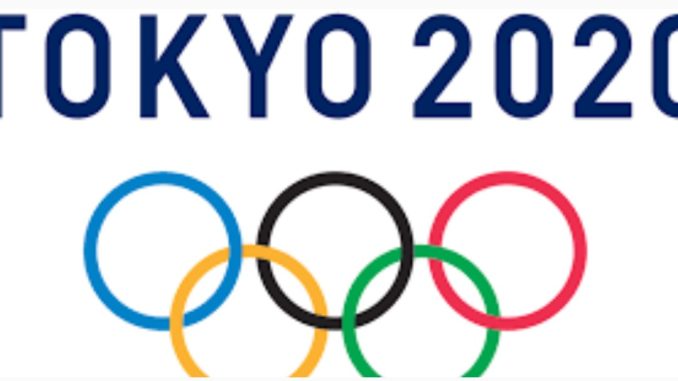
NIGERIA’S aspiration to turn in a bright outing at the Tokyo 2020 Olympic Games might have received a boost from unexpected quarters. Shortly before preparations reached a climax, the Tokyo Games were postponed in March from the original July 2020 date to July 2021. The rescheduling was instigated by the COVID-19 global pandemic ravaging the entire world. In essence, Team Nigeria – much like some other countries – has suddenly found a new window of opportunity to tune up for the Games.
Legendary in its penchant for muddling through preparations ahead of global sporting events, the new dates in 2021 will only be beneficial to Team Nigeria if the authorities systematically reinvent the system. In this respect, the manner of funding, camping and motivation of athletes need a significant change. At the best of times, funding has been knotty – it is either that it came late because budgetary provision was not released as and when due, or it ended up in wrong hands. In 2019, Sports Minister, Sunday Dare, estimated Nigeria’s bill for Tokyo 2020 at N14 billion with a caveat that it had only N2 billion.
At the Rio 2016 Games in Brazil, Nigeria repeated this shameful scenario when the authorities could not pay the hotel bills of the football players on time in Sao Paulo after additional officials joined the team midway in their hotel. They had to be rescued by the team captain, Mikel Obi, who personally offset the bill. At other times, the athletes complained bitterly about allowances not being paid, a hefty drain on their morale.
With COVID-19 tipping the economy into another recession, funding will be a huge challenge no matter the assurances from official quarters. Releasing and efficiently utilising the funds on time will go a long way in enhancing Team Nigeria’s performances at the Games.
Camping is another area of contention. Earlier, the Ministerial Advisory Committee on Tokyo 2020 had tabled a 120-day camping period to coincide with the July start of the XXXII Games. That three-month window entails a lot of money, but had it been strictly adhered to, allowances paid on time and pre-Games competitions organised, a measure of success might have been on the cards. Camping might be more complicated as the length of the coronavirus-induced lockdown is uncertain. All this suggests that the Nigeria Olympic Committee, the sports federations and the Federal Ministry of Sports have nowhere to hide.
Regarded as the peak of sporting endeavours, it is the dream of every athlete to participate – and excel by a winning at least a medal – in the quadrennial Games, whose modern version were re-launched in Athens in 1896. Except for the 1976 Summer Games in Montreal, which Nigeria and other African countries boycotted in protest against apartheid in South Africa, Team Nigeria has been part of the fiesta since the 1952 Games. Undoubtedly, the results have been below par, with the first gold medals garnered in Atlanta ’96 in men’s football and the women’s long jump. The men’s 4x400m relay team were awarded the country’s third gold medal much after the Sydney 2000 Games.
To date, Nigeria has amassed a paltry 25 medals, 13 of them from athletics. That particular sport has witnessed a downturn, not giving Team Nigeria any medal in the last two Games in London and Rio de Janeiro. All linked to poor preparations, Team Nigeria won only two bronze medals in Athens 2004, two silver and three bronze medals in Beijing 2008, none in London 2012, and returned home with a solitary bronze from men’s football in Rio 2016.
Nigeria seems never to learn from these disgraceful outings. After each routing by better prepared and motivated competitors, red-faced officials mouth promises of excellent performance next time out. But these promises are not worth the paper on which they are printed, but with the pandemic forcing a postponement, they now have an opportune moment to redeem their pledge. It will not be easy.
Team Nigeria will file out in 11 sports at Tokyo 2020 (the name is intact because of branding commitments). In athletics, Ese Brume, who won the women’s long jump in the World Championships Doha 2019, Tobi Amusan, Divine Oduduru and others have qualified. Female wrestling has Odunayo Adekuoroye. Basketball has the men’s and women’s teams, but Team Nigeria lost out in football in both categories. Other sports include boxing, weightlifting, canoeing, taekwondo and table tennis.
To win medals, the preparations have to be top-notch. Although the world might be under a lockdown, athletes in other climes are still training. They are being given equipment to train at home and are being monitored through technology. Except for those based abroad, the home-based Team Nigeria athletes might not have access to such unbroken sequence of preparations.
Without this integrated approach, Team Nigeria might be on the receiving end again next year. To overcome this hurdle, Dare should take charge. His first assignment is to keep his word that the Tokyo Games would not be a jamboree, a reference to the bogus official list that allows public officials who have no business at the Games to find their way there. This way, they deprive the athletes and officials the much-needed funds and the impetus to go for gold.
With budgetary provisions likely to come up short, Dare should think out of the box. It is time to mobilise the private sector to raise funds for Tokyo 2020. This formula achieved success in the past and might prove critical again. Additionally, the ministry can raise funds through individuals, who can be mobilised to contribute as little as N100 to the cause.
In the long term, the country with the abundance of talent at its disposal should revive sports at the grass roots, nurturing those discovered to stardom.
END

Be the first to comment